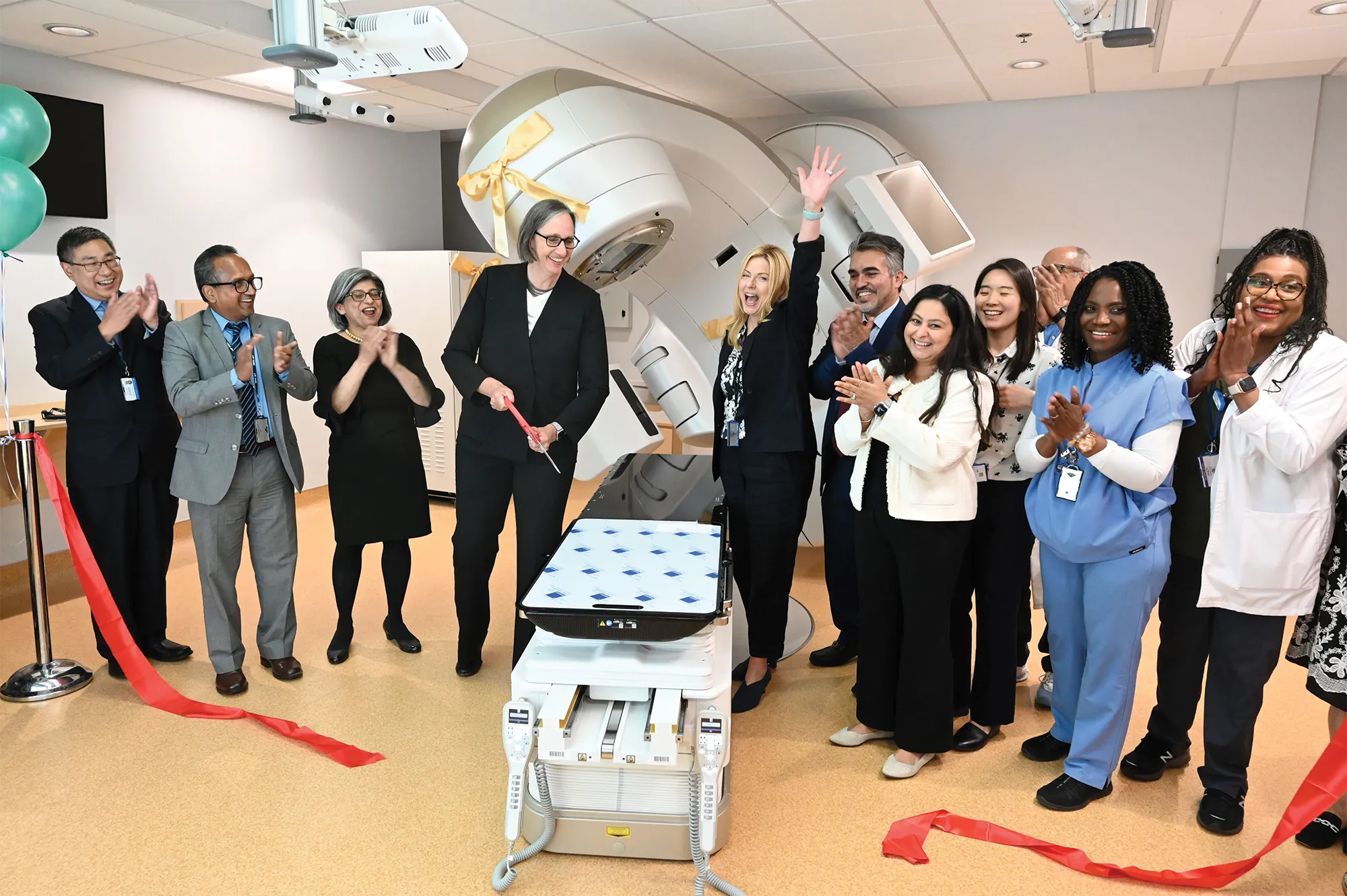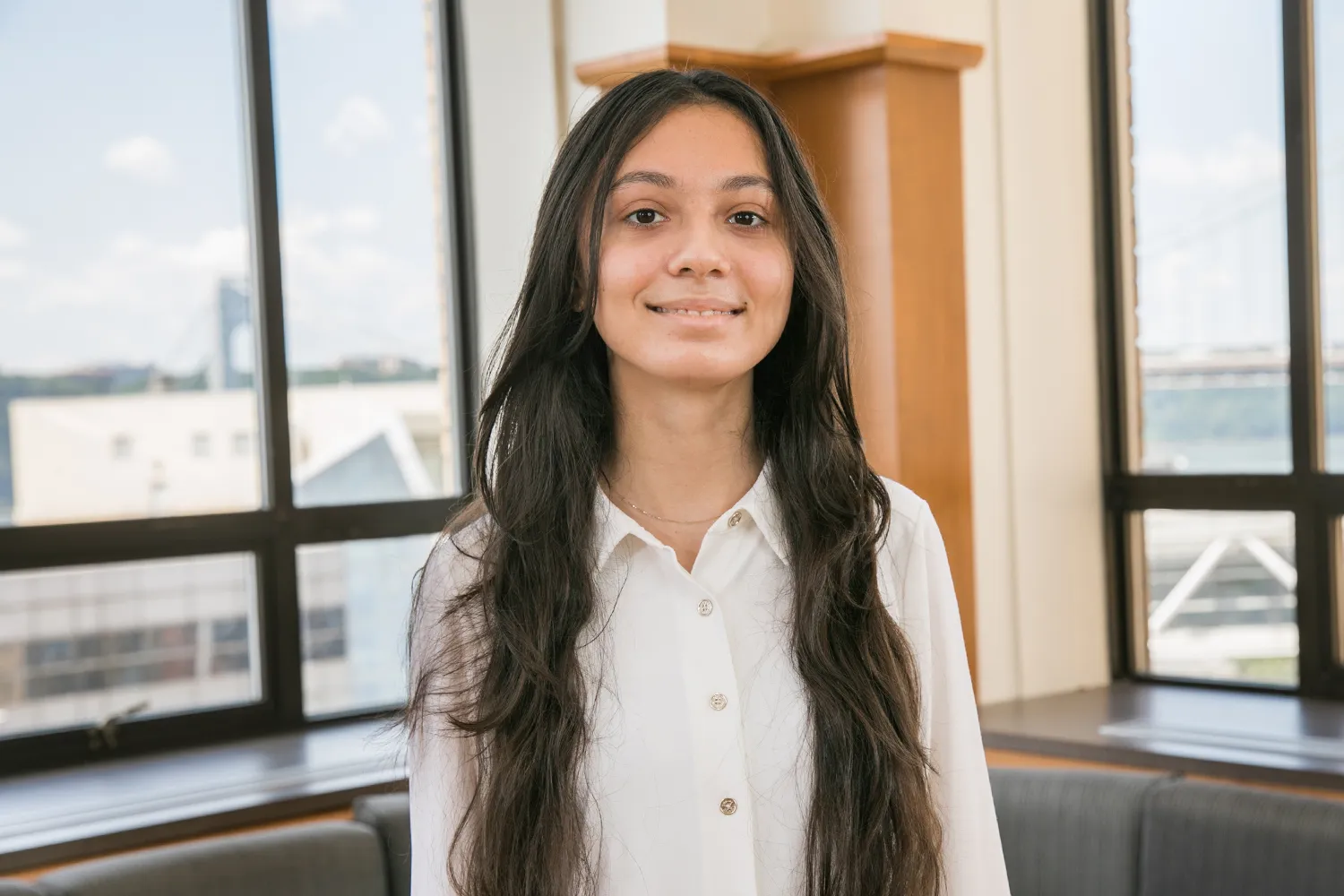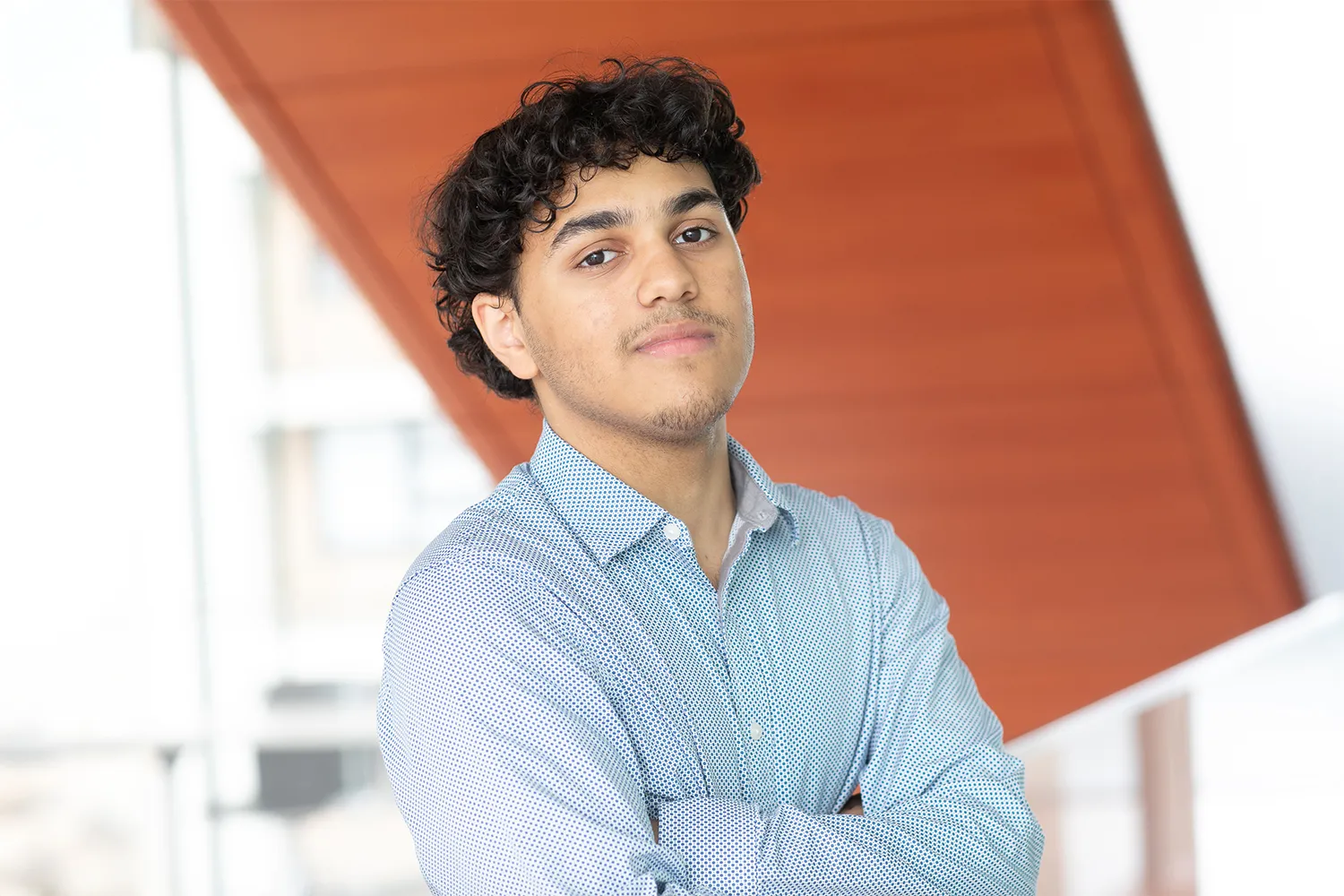-
New Frontiers
- Fighting Cancer with Artificial Intelligence
- Beyond Precision Oncology: How Base Editing is Shaping the Future of Cancer Therapy
- A New Hope for Pancreatic Cancer: Cracking the KRAS Code
- Research for Change: Tackling Breast Cancer Inequities
- Columbia at the Cutting Edge: Robotic Liver Cancer Surgery

Director’s message
At the heart of our bold vision is the voice of our patients, their families, and our community. They are central to our mission, guiding our efforts and inspiring the innovations that will shape the future of cancer care.
HICCC by the numbers
Our Vision
Our discoveries here will end cancer everywhere.
Our Mission
Working together, we empower innovation and discovery in cancer research, prevention, early detection, therapy and survivorship to reduce the burden of cancer for our patients, our community and the world.
HICCC STRATEGIC PILLARS






New Frontiers
Fighting cancer with AI
Mention artificial intelligence, and most people will immediately think of the publicly accessible tools whose ability to generate passable term papers, uncanny artwork, and runnable computer code has helped ignite everything from internet memes to union strikes. Behind the broad discussion of AI’s role in society, though, scientists and clinicians have been quietly exploring its potential to revolutionize cancer care and research.
It’s not a theoretical exercise. The US FDA has already approved several AI-based tools for clinical use, especially in cancer screening, diagnosis, and monitoring. At the Herbert Irving Comprehensive Cancer Center (HICCC), investigators are already developing and testing the next generation of cancer-focused AI tools, in a research pipeline extending from basic science to current clinical practice.

Beyond precision oncology: how base editing is shaping the future of cancer therapy

A new hope for pancreatic cancer: cracking the KRAS code
It may feel like waiting, but Olive’s lab has been hard at work uncovering the underpinnings of pancreatic cancer and identifying potential targets for new drugs that could change the game for pancreatic cancer patients.

Research for change: tackling breast cancer inequities

Columbia at the cutting edge: robotic liver cancer surgery
MAKING A DIFFERENCE



Diverse voices, better outcomes: bringing clinical trials to all

Orisel’s story: let’s talk about cancer



YES in THE HEIGHTS: tomorrow’s health equity leaders

A pipeline for emerging clinical researchers


Stories of Survival: The Velocity Ride
Acknowledgments
Our sincere gratitude goes to our dedicated advisors and leadership. We would like to thank the members of our advisory committees, who help us in our mission to reduce the burden of cancer on patients, families, and communities, along with our leadership team, whose broad expertise is integral in fostering a community of exceptional research and whole person cancer care.
Contact
Connect with us
Instagram: @Columbiacancerhiccc
Twitter/X: @ColumbiaCancer
Facebook: @ColumbiaCancer
NewYork-Presbyterian/Columbia University Irving Medical Center
1130 St. Nicholas Ave, New York, NY 10032
212.305.5098




